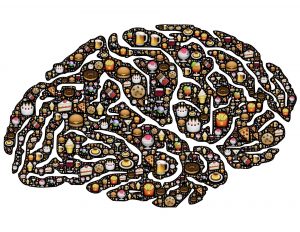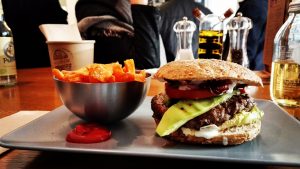A recent study found that rats equally prefer Oreos and cocaine over control substances (rice cakes and saline). Not only that—the same brain regions are activated when both Oreos and cocaine are consumed, and are even more strongly activated by Oreos. Does this mean that Oreos are more addictive than cocaine? How does food addiction work on a neurochemical level? Why don’t we have “Oreo junkies” running around the streets? Read on as we “unwrap” food addiction.
Addiction On The Brain
First we need some background on what being addicted to a drug of abuse does to the brain. Drug addiction has several behavioral trademarks. People experiencing addiction tend to experience a loss of control regarding behavior and consumption of a drug, they become dependent on the drug, and they can easily relapse if they try to stop using the drug.
On the molecular level, being addicted to a drug causes physical changes in the brain. Long-term consumption of a drug resulting in addiction can even change the way that our genes are expressed, meaning the way proteins are made based off our DNA.
These changes involve reward and learning pathways of the brain. Drugs elicit a positive “reward” response because they make us feel good. The brain learns that consuming the drug = having good feelings, so we turn to the drug with increasing frequency to feel good. The brain even becomes tolerant to the drug as it learns to expect a dose, having a less intense reaction when the same amount is consumed. The number of receptors for certain neurotransmitters that make us feel good, like dopamine, increases as drug addiction sets in. The amount of dopamine that our brain naturally produces decreases, especially in a certain brain region known as the nucleus accumbens. This means the brain requires a dose of the drug just to reach its normal level of dopamine, and then requires larger and larger doses to chase the “high” or good feelings—and if we stop taking the drug entirely, our brain is so accustomed to it that we can experience dangerous symptoms of withdrawal.
Is Food Addiction a Thing?
Experts have debated whether or not “food addiction” is a valid form of addiction. One argument against this classification is that food can’t be considered a drug since it is necessary for human life. However, there is a compelling argument that food addiction is valid, which we will focus on here—and whether it fits the bill of an ‘addiction’ or not in the long run, it is certain that food addiction is detrimentally affecting the lives of thousands of people daily.
 Symptoms of food addiction are similar to drug addiction: losing control of what, when, and how much food is consumed and becoming dependent on food when experiencing stress or negative emotions. For people who try to break out of food addiction through diets and even medical procedures, relapsing into disordered eating habits is very likely.
Symptoms of food addiction are similar to drug addiction: losing control of what, when, and how much food is consumed and becoming dependent on food when experiencing stress or negative emotions. For people who try to break out of food addiction through diets and even medical procedures, relapsing into disordered eating habits is very likely.
The neurochemical similarities of food addiction and drug addiction are striking. The same reward circuit is activated when high-calorie, high-sugar food is consumed as when a drug is consumed. In the nucleus accumbens, dopamine levels decrease over time so the brain becomes reliant on food consumption to stimulate good feelings, like in drug addiction.
Are Oreos Really More Addictive Than Cocaine?
After getting some neurochemical background, now we can look at the “Oreos and cocaine” study. The study found that rats show an equal preference for Oreos over rice cakes as they do cocaine over saline. The researchers looked at the nucleus accumbens (the brain’s reward center discussed earlier) and found that Oreos stimulated even more reward neurons than cocaine or morphine.
Now, does this mean that Oreos are more addictive than cocaine, or that they’re even addictive in the first place? Not necessarily. Our brains do show a strong positive “reward” impulse when consuming high-calorie, high-fat, and high-sugar foods like Oreos, but this doesn’t necessarily mean we are forming addictive habits. First, everyone living eats food, and very few people become addicted. Additionally, food addictions don’t appear to be food-specific; people who are addicted to food don’t necessarily having a craving that can only be sated with Oreos, any calorie-fat-sugar blast tends to do the trick.
Although the study’s findings have interesting implications in relating neurochemical effects of food addiction to effects of drug abuse, we don’t have to worry about becoming Oreo junkies just yet.
